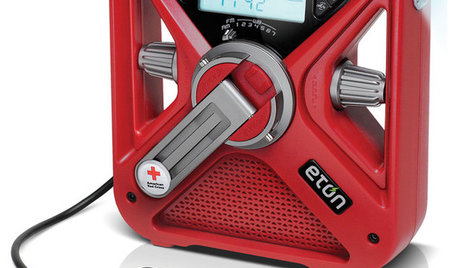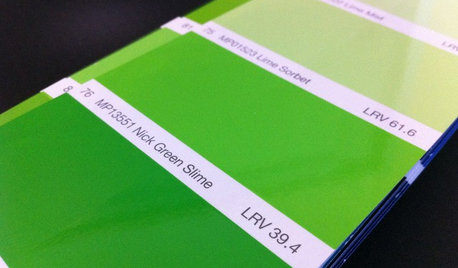disaster
gmw1
13 years ago
Related Stories

DESIGN FOR GOODShelter in a Storm: Architects Improve Global Disaster Relief
Temporary housing takes a well-designed turn with affordable, easily stored structures that address privacy
Full Story
HOME TECH7 Ways to Charge Up and Connect After Disaster
Products and tips for communicating and keeping essential items running till the power's back on
Full Story
DISASTER PREP & RECOVERYHow to Prep for Disaster Insurance Claims
Tools and tips for making an inventory list, documenting damage to your home, and working with your adjuster
Full Story
HOMES AROUND THE WORLDHouzz Tour: Warehouse Home Goes from Disaster to Triumph
A New Zealand family beats the odds 3 times when its loft apartment is threatened with demolition after a series of earthquakes
Full Story
MOST POPULARWhat to Do After a Hurricane or Flood
How you treat your home after a natural disaster can make all the difference in its future livability — and your own personal safety
Full Story
MOST POPULARHow to Create an Inventory, Whether You're Naturally Organized or Not
Documenting your home items is essential, even if disaster seems unimaginable. And it may be easier than you think
Full Story
MOST POPULAR9 Real Ways You Can Help After a House Fire
Suggestions from someone who lost her home to fire — and experienced the staggering generosity of community
Full Story
DISASTER PREP & RECOVERY10 Contractor Scam Warning Signs
Protect yourself, your home and your finances after a natural disaster by following these tips for sniffing out storm chasers
Full Story
DISASTER PREP & RECOVERYRecovery Tips From a Hurricane Survivor
Redefining ‘normal’ is key when you’re dealing with any kind of damage from a natural disaster
Full Story
DECORATING GUIDESFrom Queasy Colors to Killer Tables: Your Worst Decorating Mistakes
Houzzers spill the beans about buying blunders, painting problems and DIY disasters
Full StorySponsored
More Discussions






wendrew8
kathmcd7
Related Professionals
Mountain Brook Landscape Architects & Landscape Designers · Oconomowoc Landscape Architects & Landscape Designers · Sand Springs Landscape Architects & Landscape Designers · Arlington Landscape Contractors · Bedford Heights Landscape Contractors · Milford Mill Landscape Contractors · Monterey Landscape Contractors · Palos Verdes Estates Landscape Contractors · Saint George Landscape Contractors · Saint Paul Landscape Contractors · The Villages Landscape Contractors · Suisun City Landscape Contractors · Acushnet Stone, Pavers & Concrete · Evans General Contractors · Fort Pierce General Contractorssteamyb
antoniab
steamyb
equinoxequinox
gmw1Original Author
Shaul
alabamanicole
tammy_b
randomz
equinoxequinox
randomz
pjames
anitasplace